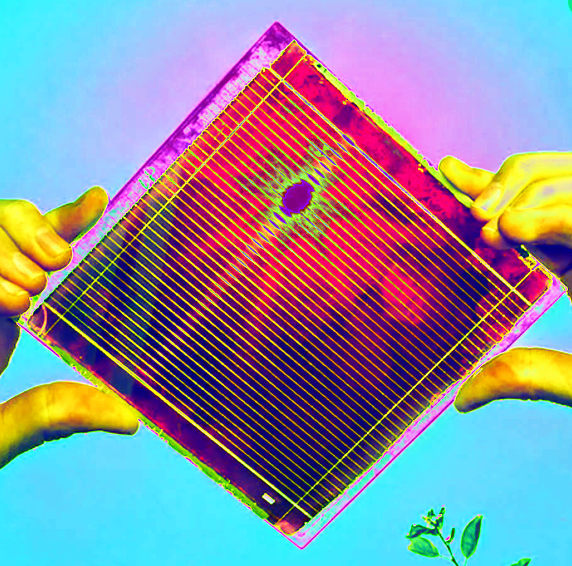Doping boosts next-gen solar
 Queensland researchers say their latest studies bring a new generation of cheap, sustainable and efficient solar cells closer.
Queensland researchers say their latest studies bring a new generation of cheap, sustainable and efficient solar cells closer.
Research engineers have modified a nanomaterial to make solar cells as efficient as silicon-based cells, but without their high cost and complex manufacturing.
It could address an urgent need for alternative environmentally-friendly energy sources capable of providing efficient and reliable energy production.
“Silicon-based solar cells remain the dominant first-generation product, making up 90 per cent of the market, but demand is high for cells that can be manufactured without their high prices and complexity,” says Professor Joe Shapter from UQ’s Australian Institute for Bioengineering and Nanotechnology (AIBN).
“Among the next-generation technologies, perovskite solar cells (PSCs) have attracted enormous attention because of their high efficiency and ease of fabrication.
“The technology has undergone unprecedented rapid development in recent years.
“But the new generation of solar cells still have some drawbacks such as poor long-term stability, lead toxicity and high material costs.”
Professor Shapter’s team has studied a nanomaterial with great promise in overcoming some of the new cell’s drawbacks. They used doping, a common method of modifying the new cell’s nanomaterial, to enhance its electrical properties.
The researchers found that the efficiency and thermal stability of the doped cells significantly outperformed those that were not doped.
“The PSCs that had doped cells showed a remarkable solar conversion efficiency that exceeded 21 per cent,” Professor Shapter said.
Solar cell efficiency is the rate at which a solar panel transfers the sunlight into electricity, with the average silicon cell efficiency presently between 15 and 22 per cent.
“This gives us hope that solar energy can continue to develop and improve as one of the most effective renewable and sustainable energy technologies,” Professor Shapter said.
He said the research is part of a global push towards advanced and sustainable solar cell technology.
“Our research contributes to intensive efforts to develop various types of solar cells with the aim of realising efficient, stable and low-cost replacements for present silicon-based technology.”







 Print
Print